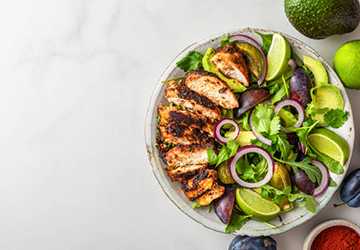How to Ensure Wellness with a Busy Routine
In this world of modern living, it is easy to become consumed by the endless rush and stress of our daily lives at the expense of our wellness. Finding a balance between study and self-care may be unsafe, but it is crucial for a healthy and fulfilling life. Here are simple tips to help you continue your journey to wellness.

Prioritize sleep
Sleep is one of the critical factors of health, and it is often neglected. While enough sleep is essential to our physical, mental, and emotional well-being, it is a significant factor that needs to be considered. Try to get 7-9 hours of good quality sleep every night.
A bedtime routine is essential, so start calming down one hour before bed. Avoid screens and stimulating activities; try reading, meditation, and mild stretching for relaxation.
A balanced diet
The heart of a busy life can lead us to rely on foods high in sugar, fat, or salt. Choose nutritious, whole foods that fuel your body and give you longer-lasting energy.
Plan the meals you will eat beforehand and cook nutritious options in advance for the days you will be busy. Consume diverse fruits, vegetables, lean meat, whole grains, and healthy fats. Drink a lot of water daily to keep yourself hydrated and support the body's optimal functions.
A lot of time for physical activity
Physical activity is one of the most critical steps to maintaining good health, but it is usually the first to sacrifice when we have a busy schedule. Please list those activities you enjoy and begin to schedule them into your day.
Set a target of at least 30 minutes of moderate-intensity exercise most days of the week. Try to include movement in your daily life by going upstairs instead of taking an elevator, walking or riding a bike instead of driving short distances, and stretching to avoid stiffness and improve flexibility.
Practice stress management techniques
Prolonged stress befalls our health and may cause the onset of physical and mental illnesses. Becoming skilful at stress management is crucial for the stability of your life when it is full of busy activities. Highlight the factors that put pressure on you and explore how to deal with them.
To face challenges calmly, stay grounded with mindfulness and deep breathing techniques. Set aside time during the day for a break and use it to rejuvenate and reenergize.
Set boundaries
Establishing boundaries is vital to keeping your physical and emotional energy in balance. Become good at setting priorities for your tasks based on their urgency and importance.
Be realistic and do not over-commit yourself to things you cannot accomplish within a specific timeframe. It is essential to be able to say no in a kind and firm manner if new demands or obligations that might threaten your well-being arise.

Keep in contact with people you care about
A good relationship with family and friends is essential for mental and emotional well-being. Nonetheless, scheduling a regular time to be with your family amid a busy routine is necessary.
Tell them your stories, ideas, and emotions, make them feel part of the group, and support each other. Spending particular time with near and dear ones can bring joy, reduce stress, and help you feel part of the family and fulfilled.
Practice mindful technology use
In our current digital environment, technology is no longer confined to our workplaces; it has also found its way into our personal lives. On the other hand, prolonged screen time and constant connectivity might be sources of stress and pressure.
Work on mindful technology use by applying limits and making tech-free places or times available during your day. Cut down on social media scrolling, checking emails, and other digital interruptions during the focused times of the day.
Engage in continuous learning
Fire up your mind and open your horizons by taking advantage of lifelong learning opportunities. Schedule an hour or two a week to read books, listen to podcasts, or attend workshops and seminars that can be sources of inspiration or professional development.
The acquisition of new skills, development of our minds, and reflection of different views make our lives more exciting and promote our cognitive function, creativity, and flexibility.
Practice gratitude and positive thinking
Instil the attitude of gratitude and positive thinking, which will nurture mental resilience and mental well-being. Set aside time daily to think about the things you're grateful for, whether great or small. Make a gratitude diary, or observe moments of happiness, kindness, and achievements.
Try to highlight positivity in your life and draw inspiration from the challenges you encounter as opportunities for growth and learning. Optimism and gratitude can help you improve your mood, view of life, and mental health.
Downtime and leisure time
Finding time to chill out, do things you enjoy, and achieve the peace of mind you need is essential amid a hectic schedule. Include some time off and leisure time on your schedule, as with other appointments or tasks.
Create your unique statement using the given sentence. Try doing things that make you relaxed and revitalized, like reading for fun, watching movies, practising hobbies, and being in the outdoors. When you are leisurely engaged, disengage yourself from work-related issues to fully concentrate on relaxation and fun.
Conclusion
With thoughtful planning and prioritizing, wellness can be integrated into a hectic schedule. It is essential to devote sufficient time to sleep, eat healthy meals, exercise regularly, manage stress effectively, and set limits to your schedule to achieve a healthy lifestyle despite a busy schedule.